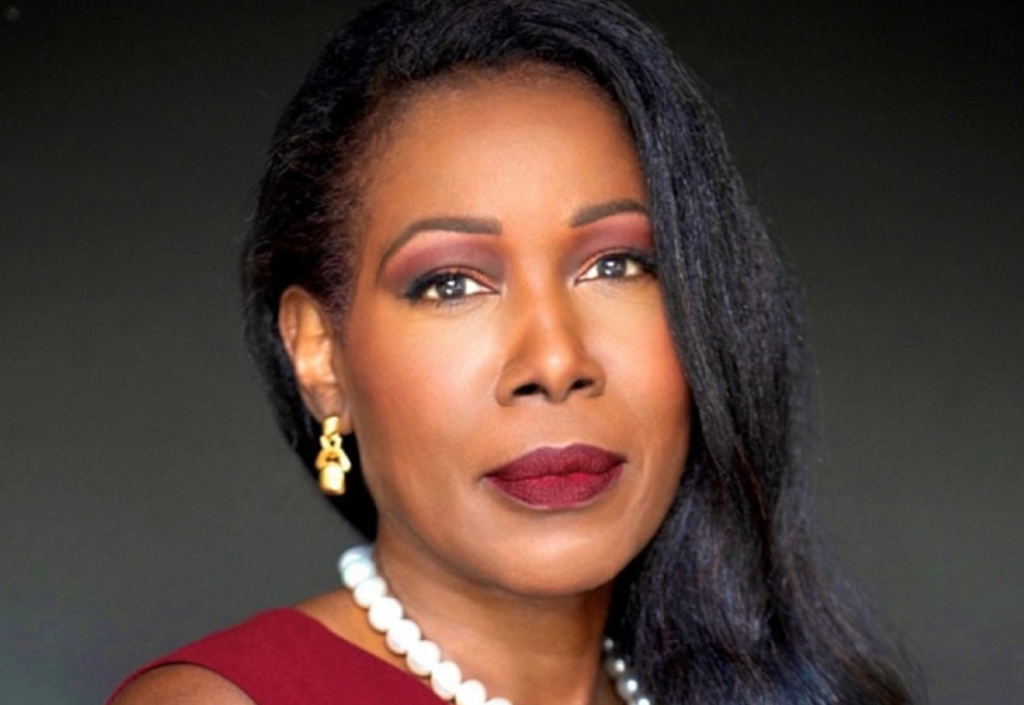Roderick Jeffrey Watts is a man whose contributions to psychology and social justice are often overshadowed by his personal connection to Pulitzer Prize-winning author Isabel Wilkerson. Yet, his life and work stand as an inspiring testament to how psychology can serve as a catalyst for social change. A distinguished psychologist, educator, and advocate, Watts has dedicated much of his life to exploring the intersections of psychology, race, and systemic oppression. In this detailed article, we will explore Roderick Jeffrey Watts’ biography, career, relationship with Isabel Wilkerson, and much more.
Quick Bio
| Detail | Description |
|---|---|
| Full Name | Roderick Jeffrey Watts |
| Profession | Professor of Psychology, Advocate for Social Justice |
| Specialization | Personality Psychology, Social Justice |
| Education | Ph.D. in Clinical-Community Psychology |
| Teaching Positions | New York Graduate Center, DePaul University, Stellenbosch University |
| Notable Works | Co-editor of Human Diversity: Perspectives |
| Advocacy Focus | Social justice, racial equality, mental health |
| Marital Status | Married to Isabel Wilkerson |
| Personal Interests | Reading, Music, Mentorship |
| Philosophy | Integration of psychology with social justice to combat oppression |
Early Life and Family Background of Roderick Jeffrey Watts
Roderick Jeffrey Watts‘ journey into psychology was shaped early on by the socio-political environment around him. Growing up in a family deeply committed to addressing racial and social inequalities, he was exposed to the complexities of human behavior from a young age. His mother worked as an office manager for Black Dimensions, an organization dedicated to African American issues, while his father worked as a health planner in New York. The intellectual discussions that took place in his home about race, identity, and social justice no doubt fueled his passion for understanding the human mind and the larger systems that shape it.
Roderick Watts’ Parents: Influences on His Career Path
Roderick’s father, a health planner, played a significant role in his early understanding of systemic structures, particularly those influencing healthcare and public policy. Growing up in such an environment exposed Roderick to the importance of community health and social equity. His mother, on the other hand, exposed him to the nuances of African American identity through her work at Black Dimensions. This early exposure to the challenges faced by marginalized communities sparked Roderick’s interest in social justice, which would later define both his academic and professional careers.
Roderick Jeffrey Watts’ Education and Academic Journey
Roderick Jeffrey Watts pursued his higher education with a clear focus on psychology, aiming to merge the understanding of human behavior with his passion for social justice. He earned his Ph.D. in Clinical-Community Psychology, a discipline that blends clinical understanding of mental health with a broader community-based approach to solving social problems. This interdisciplinary education positioned him to explore how psychological practices could be applied to address issues such as racial discrimination, mental health disparities, and community empowerment.
The Career of Roderick Jeffrey Watts: A Life Dedicated to Social Justice
Roderick Watts’ career is marked by a clear commitment to using psychology as a tool for social change. Early in his career, he became known for his expertise in personality psychology and social identity, particularly focusing on marginalized groups such as African American adolescents. Over time, he has held teaching positions at prominent institutions like the New York Graduate Center and DePaul University, where he has mentored countless students in the fields of psychology, community advocacy, and social justice.
Roderick Jeffrey Watts at DePaul University and New York Graduate Center
As a professor, Roderick Watts has made significant contributions to the academic landscape, teaching courses on African American psychology, social identity, and community-based research. His courses are designed not only to impart academic knowledge but also to instill a sense of responsibility in students to engage with the world in a meaningful, socially just manner. At DePaul University and the New York Graduate Center, Watts has been praised for his ability to bring real-world issues into the classroom, encouraging students to examine psychological theories through the lens of social justice and community empowerment.
Major Publications and Contributions to Psychology
Roderick Jeffrey Watts has made several significant contributions to the field of psychology, with a focus on human diversity and the ways in which social structures influence individual and collective behavior. One of his major works is the book Human Diversity: Perspectives, which he co-edited. This book delves into the complexities of human behavior from multiple cultural and social perspectives, examining how identity, race, and social structures shape our psychological experiences. His research often focuses on understanding the psychological effects of systemic oppression and how marginalized individuals and communities can be empowered through psychological theory and practice.
Personal Philosophy: Integrating Psychology and Social Justice
Watts’ personal philosophy is grounded in the belief that true psychological understanding requires more than just an analysis of individual behaviors; it requires an examination of the broader social structures in which those behaviors take place. His work is centered on integrating psychology with social justice, aiming to address and mitigate the effects of oppression and inequality. Watts argues that addressing societal issues like racial discrimination and economic disparity is essential for fostering healthy, thriving individuals and communities.
Roderick Watts’ Advocacy and Community Involvement
Beyond academia, Roderick Watts has been deeply involved in various social justice initiatives, particularly those related to mental health, racial equality, and the empowerment of marginalized communities. He has worked with numerous community programs that aim to provide resources and support to African American adolescents and other underserved populations. Watts has also been an active member of boards and committees that focus on social equity, using his psychological expertise to advocate for policies that promote mental health, education, and equality in healthcare.
Roderick Jeffrey Watts and Isabel Wilkerson: A Partnership in Social Justice
Roderick Watts’ personal and professional life is closely intertwined with that of Isabel Wilkerson, the Pulitzer Prize-winning author known for her work on race and social inequality, most notably her book The Warmth of Other Suns. Watts and Wilkerson’s marriage is one that blends both their passions for social justice. The couple frequently collaborates on projects that address the intersection of race, identity, and systemic oppression. Wilkerson’s work focuses on the historical and contemporary experiences of Black Americans, while Watts’ academic and advocacy work complements her efforts by providing a psychological and social framework for understanding those experiences.

Roderick Watts’ Personal Life: Interests and Hobbies
Outside of his professional commitments, Roderick Watts enjoys a quiet life that includes reading and music. These hobbies are not just for relaxation but also serve as essential components of his well-being. Watts believes that nurturing the mind through literature and music is crucial for maintaining balance and emotional health, particularly given the demands of his high-pressure career.
The Legacy of Roderick Jeffrey Watts
Roderick Jeffrey Watts’ legacy is one of profound academic achievement and social advocacy. His work continues to shape the ways in which we understand the intersection of psychology and social justice. Through his teachings, writings, and activism, Watts has demonstrated that psychology can be a powerful tool for social change, helping to dismantle oppressive structures and build stronger, more equitable communities.
FAQs
1. Who is Roderick Jeffrey Watts?
Roderick Jeffrey Watts is a professor of psychology who specializes in personality psychology and social justice. He has made significant contributions to understanding the psychological impacts of systemic oppression and social identity, particularly through his work with marginalized groups.
2. What is Roderick Jeffrey Watts’ educational background?
Roderick Watts holds a Ph.D. in Clinical-Community Psychology. His education has provided him with the tools to integrate psychological theory with social justice advocacy, allowing him to focus on the impact of societal structures on mental health.
3. What are some of Roderick Jeffrey Watts’ key contributions to psychology?
Watts is co-editor of Human Diversity: Perspectives and has contributed to research focusing on human diversity, racial identity, and the psychological effects of oppression. His work seeks to integrate psychology with social justice, addressing issues like systemic discrimination and racial inequality.
4. What role does Roderick Jeffrey Watts play in social justice?
Roderick Watts is deeply committed to social justice, particularly in advocating for racial equality and mental health resources for marginalized communities. He has worked on various programs designed to empower African American adolescents and dismantle systemic barriers in education and healthcare.
5. How is Roderick Jeffrey Watts connected to Isabel Wilkerson?
Roderick Watts is married to Pulitzer Prize-winning author Isabel Wilkerson. Their shared commitment to social justice has led to numerous collaborations that focus on race, identity, and systemic oppression.
Conclusion
Roderick Jeffrey Watts is a remarkable figure whose life and career reflect a deep commitment to both psychology and social justice. From his academic achievements to his advocacy work and his personal life with Isabel Wilkerson, Watts has demonstrated that psychology is not just about understanding the mind but also about using that understanding to challenge and change societal structures. His legacy will undoubtedly continue to inspire future generations to approach both psychology and social justice with the same dedication and passion.












Leave a Reply